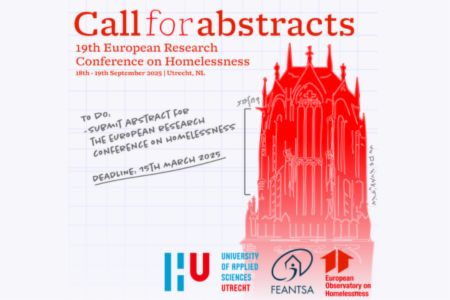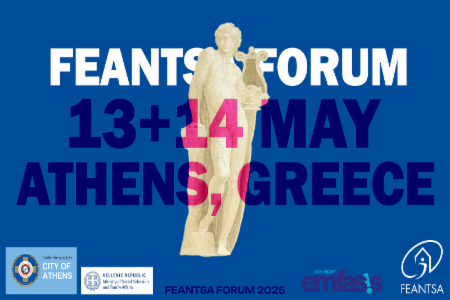FEANTSA REPORT
Investment in Affordable & Social Housing Solutions:
Reaching the “Locked Out” in Europe
Read and download the report here
Europe is facing a well-documented housing crisis in which housing costs are increasingly outstripping incomes, impacting the lowest income groups most. Homelessness is on the rise in 24 out of 28 member states. FEANTSA estimates that 700,000 people experience homelessness on any given night in the EU, an increase of 70% in the last decade.
In the last year, COVID19 has demonstrated beyond any doubt how critical access to decent and affordable housing is to human health and wellbeing. For those living in inadequate or insecure housing, “stay home” can be a dangerous injunction. For the hundreds of thousands of homeless people in Europe, it is simply not an option.
However, the pandemic has also provided opportunities to better address homelessness and housing exclusion. In particular, Europe’s recovery from the COVID19 crisis provides clear scope to “build back better” by investing to solve the housing crisis.
Meanwhile, issues of homelessness and housing exclusion have never been more central to European policy, both in social policy and other EU policy contexts. The EU has also taken an increasingly ambitious role in investment in recent years, with a new investment plan, 2021-2027 Invest EU programme, with the capacity to deliver social impact.
This report could be regarded as the map at the crossroads of these developments. It outlines the urgent need for investment in solutions for people who are “locked out” of decent, affordable housing in the European Union, answering the question of “who is locked out?” with a collection of 12 country profiles and an EU overview; it brings a specific angle to broader debates about housing affordability by focusing on the solutions needed for those most marginalised in today’s housing markets and systems in Europe; it argues that the EU’s investment agenda 2021-2027 could boost investment in solving homelessness and housing exclusion and makes recommendations about how to achieve this, not least in the presentation of 12 investment case studies for further inspiration; and, it shows that channelling investment into tackling homelessness and housing exclusion could maximise the social impact and help reach the additionality objectives of the EU’s investment agenda.
The current context makes for an unprecedented opportunity to invest in addressing homelessness and housing exclusion in the European Union. We hope that this report will help convince policymakers, investors, project promoters and other stakeholders to seize that opportunity, and will provide them with practical ideas on how to do so.
The report was supported by the King Boudouin Foundation and will be launched at the European Policy Centre’s event on ‘Achieving a more affordable housing market through European investment’ on 23 February 2021.






